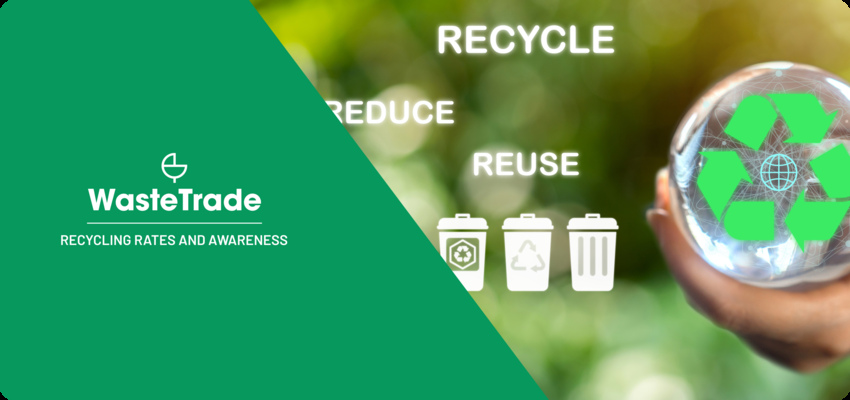Recycling Rates and Awareness

Welcome to WasteTrade, your go-to global waste marketplace where buyers and sellers of waste materials come together. In this article, we delve into the crucial aspects of Recycling Rates and Awareness, shedding light on the importance of sustainable practices in our modern world. From the global perspective to specific insights on recycling rates in the UK, we explore key trends and strategies to enhance recycling practices. Join us on this journey towards a greener future as we tackle the challenges and opportunities in promoting environmental consciousness and recycling efficiency.
Recycling Rates Uk

Recycling rates in the UK have been steadily increasing in recent years, reflecting a growing awareness and commitment to environmental sustainability. In 2020, the UK achieved a national recycling rate of 45.5%, a significant improvement from previous years. This positive trend can be attributed to various factors such as increased access to recycling facilities, improved waste management practices, and a greater emphasis on recycling education and awareness campaigns.
Despite this progress, there is still room for improvement in the UK’s recycling efforts. Certain regions continue to lag behind in recycling rates, highlighting the need for targeted initiatives and support in these areas. Additionally, the UK faces challenges in dealing with certain types of waste materials, such as plastic packaging and electronic waste, which require innovative solutions to increase recycling rates further. To build on the success achieved so far, continued collaboration between government, businesses, and individuals is essential to drive further improvements in recycling rates and move towards a more sustainable future.
Sustainable Recycling Practices

Sustainable recycling practices are crucial for reducing environmental impact and conserving resources. In the UK, initiatives such as kerbside recycling programmes and household waste segregation have become commonplace to encourage proper waste management. By separating recyclables such as paper, plastic, glass, and metal from general waste, these practices help to divert materials away from landfills and towards recycling facilities.
Furthermore, the UK government has been actively promoting the use of recycled materials in various industries to support a circular economy. By incorporating recycled content into manufacturing processes, businesses not only reduce their carbon footprint but also contribute to the creation of a market for recycled products. This holistic approach to recycling not only addresses waste management but also promotes sustainability by conserving natural resources and minimising the need for new raw materials. As more individuals and organisations embrace sustainable recycling practices, the UK moves closer to achieving its environmental goals and building a greener future for generations to come.
Awareness On Recycling Benefits
Raising awareness about the benefits of recycling is crucial to inspiring positive change in communities. By educating individuals on the environmental impact of their waste and the benefits of recycling, we can promote a more sustainable way of living. Recycling helps to reduce the amount of waste sent to landfills, conserves natural resources, and minimizes pollution. By encouraging recycling habits, we can contribute towards a healthier planet for future generations.
In addition to the environmental benefits, recycling also has economic advantages. Recycling materials such as paper, glass, and plastic reduces the need for raw materials, which can help lower manufacturing costs. Recycled materials can be used to create new products, contributing to a circular economy that promotes resource efficiency. By promoting awareness of these benefits, we can create a culture of recycling that not only benefits the environment but also boosts the economy and creates a more sustainable future for all.
Improving Recycling Rates
Improving recycling rates in the UK is crucial for sustaining the environment and reducing the impact of waste on our planet. One effective way to boost recycling rates is to raise awareness about the importance of recycling and its benefits. Educating the public about which items can be recycled and the correct way to do so can help people make more informed choices when it comes to disposing of their waste. Community workshops, school programs, and public service campaigns can all play a vital role in spreading awareness and encouraging responsible recycling practices.
In addition to education, implementing convenient and accessible recycling infrastructure is essential for increasing recycling rates. Providing clear and easy-to-use recycling bins in public areas, workplaces, and homes can encourage more people to recycle their waste. Local authorities and businesses should work together to ensure that recycling facilities are easily available and that collections are regular and efficient. By making recycling more convenient and accessible, we can help create a culture of sustainability and reduce the amount of waste sent to landfills, ultimately leading to a cleaner and healthier environment for future generations.
